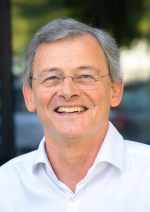Propulsion Systems
The targets and development foci for future propulsion systems strongly depend on the legal requirements concerning emission and consumption reduction. Approaches for their fulfillment reach from the optimization of existing SI and CI engines, advanced IC related concepts and fuels and their electrification via plug-in hybrids to battery-electric and fuel-cell propulsion systems.
Research projects covering propulsion systems with SI engine processes include several approaches for efficiency enhancement; those treating diesel engine processes emphasize the reduction of particulate and NOxemissions with advanced combustion process and exhaust gas after treatment concepts. A further emphasis is put on friction analysis and its optimization. Not only using complex simulation tools but also including an especially developed experimental method, this procedure is carried out separately from the working process.
Unconventional combustion systems like dual-fuel concepts (natural gas-diesel; H2-diesel or gasoline-diesel) as well as for alternative fuels form a further focus. Natural gas, biogenous, gaseous and liquid fuels play a decisive role in short-term. Medium and long term approaches are so-called E-fuels, being generated from renewable electric energy via electrolysis and synthesis, with the possibility to design their own characteristics and to use them backward compatible. Depending on electric power generation, E-fuels are CO2 emission – reducing just as electric drivetrains. The configuration and optimization of electric drivetrains forms a further growing emphasis offering a battery simulator and a HIL test bench.
Team
Univ.-Prof. DI Dr. Helmut Eichlseder

- Bitte Javascript aktivieren!
- +4331687330000
Petra Braunstein

- Bitte Javascript aktivieren!
- +4331687330001
Research focus
- DI Otto and Diesel combustion systems
- Electrification of IC engines and hybrid strategies
- Combustion systems for alternative fuels, dual-fuel combustion systems
- Exhaust gas aftertreatment systems
- Direct injection systems, supercharging technology
- Unconventional working processes
- Optical combustion diagnostics
- Natural gas and Hydrogen – drive train systems and components
- Friction analyses and simulation
Infrastructure
- Test beds for propulsion systems with gasoline, diesel, gas mode and E-machines
- Single and multiple cylinder research engines
- Battery simulator, HIL test bench
- Transparent research engine for optical combustion diagnostics
- Specific measurement technology at the Institute (Friction and flow test bed, injection chamber, particulate measuring technique, Fast FID, FTIR, laser measurement technique, …)
- Specific simulation